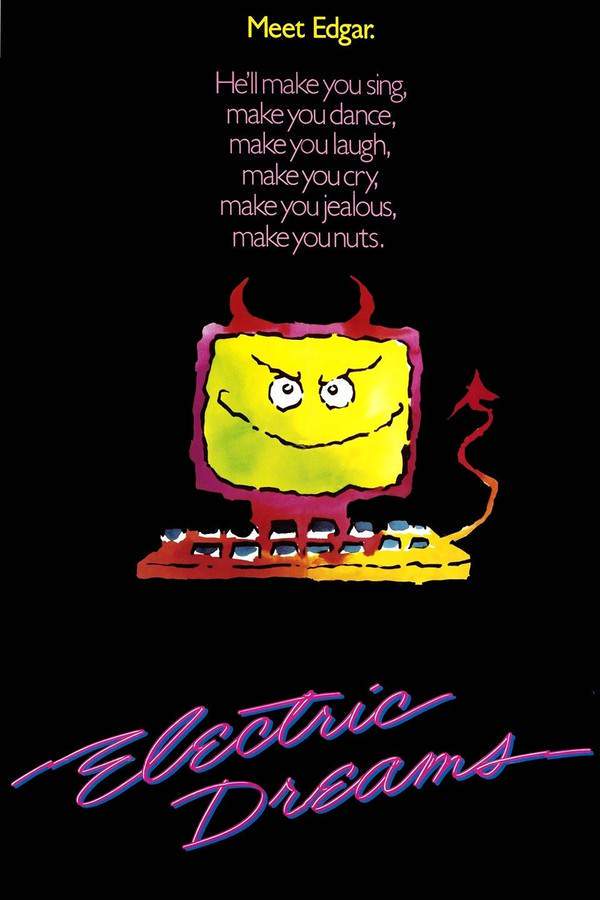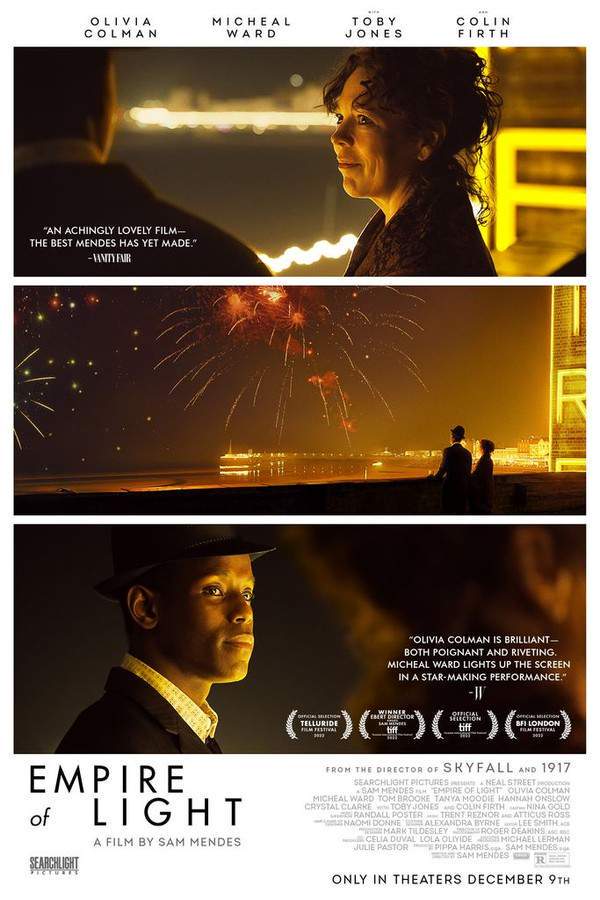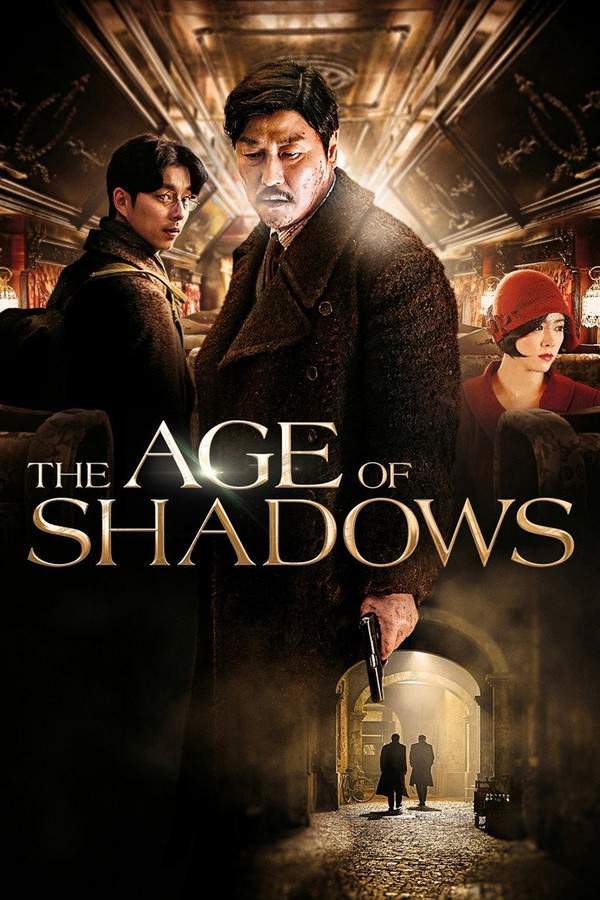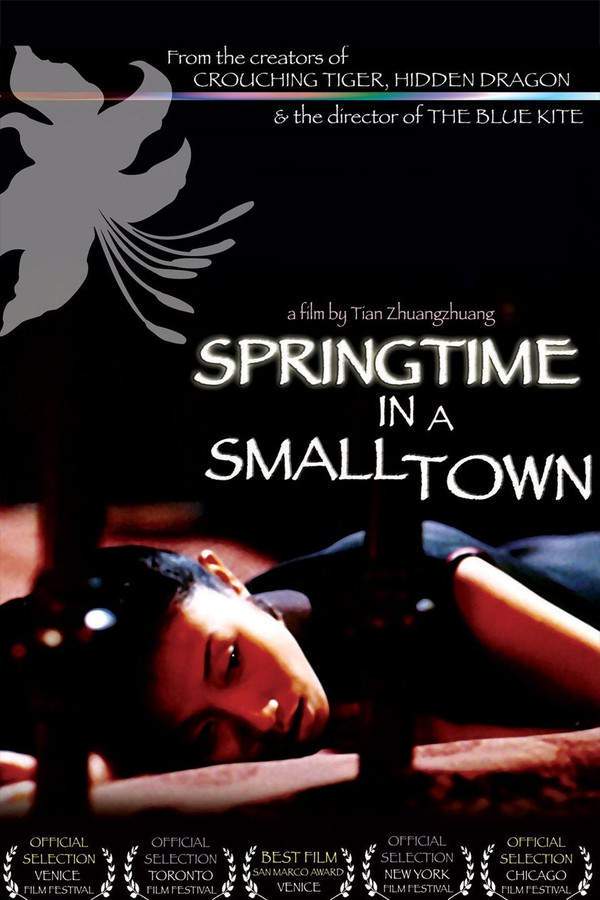
Electric Shadows 2005
Directed by

Jiang Xiao
Made by

First Run Features
Electric Shadows Plot Summary
Read the complete plot summary and ending explained for Electric Shadows (2005). From turning points to emotional moments, uncover what really happened and why it matters.
Mao Xiaobing, a water bottle delivery boy in Beijing, has a passion for movies that seems to define much of his life. However, his routine takes a drastic turn when he is unexpectedly attacked by Ling-Ling (Qi Zhongyang) while riding his bike, leading to his hospitalization. Following the incident, Ling-Ling is arrested but remains cryptic, only requesting that Mao feed her fish. Upon stepping into her apartment, Mao discovers that Ling-Ling has created an entire shrine dedicated to the vintage film star, Zhou Xuan.
As Mao reads through Ling-Ling’s diary, the narrative transports us back in time to the life of her mother in Ningxia. Her mother, a radio worker, faced abandonment by her lover after becoming pregnant, branding her as a counter-revolutionary. With nowhere to turn, she relocates to the countryside and finds solace in Pan, a movie projectionist, with whom she eventually marries. During this time, Ling-Ling grows up with the belief that her biological father was a star from Zhou Xuan’s era.
An unexpected turn of fate hits Mao Xiaobing too, as he recalls the abusive behavior from his own father, who sent him away to live with relatives after he caused trouble. The narrative takes a poignant turn as Ling-Ling, who had a rocky relationship with her younger brother, Bing-Bing, initially finds him to be a source of disgust. Despite her initial rejection, Ling-Ling gradually accepts her brother, yet their bond is tragically cut short.
The revelation of a traumatic event that resulted in Ling-Ling’s deafness finds its roots in a fateful day when she and Bing-Bing tried to escape their confining home. Bing-Bing lied about needing Ling-Ling to come outside, which leads to a devastating accident that changes her life forever. Overwhelmed by grief and guilt, Ling-Ling runs away from her home, struggling to navigate life in a city filled with memories of her family.
As fate would have it, Mao Xiaobing learns that Ling-Ling’s parents have moved closer to him. Driven by a series of haunting memories, he unintentionally knocks over bricks, leading to the tragic death of the puppy that Ling-Ling had named after her lost brother. This incident reawakens her painful memories, inciting her violent attack on him.
In a heartfelt reunion, Mao Xiaobing sets out to visit Ling-Ling in the mental institution and brings with him a piece of her past—a film strip that reignites her connection to her family. Their shared experiences come full circle when she finally watches a movie on the same screen that once defined her childhood, surrounded by her parents once again. This emotional journey of love, loss, and redemption culminates in a poignant reminder of the power of memory and the bonds of family.
Electric Shadows Timeline
Follow the complete movie timeline of Electric Shadows (2005) with every major event in chronological order. Great for understanding complex plots and story progression.
Mao's Passion for Movies
Mao Xiaobing is introduced as a water bottle delivery boy in Beijing who has a profound passion for movies. This love for films permeates every aspect of his life, shaping his dreams and aspirations.
Mao's Attack
While riding his bike, Mao is unexpectedly attacked by Ling-Ling, leaving him severely injured and requiring hospitalization. This shocking event serves as the catalyst for the unfolding story and introduces the character of Ling-Ling.
Ling-Ling's Arrest
Following the attack on Mao, Ling-Ling is arrested. However, she remains cryptic during her arrest, only requesting that Mao feed her fish, hinting at a deeper connection between the two.
Discovery of the Shrine
Upon visiting Ling-Ling's apartment to fulfill her request, Mao discovers a shrine dedicated to the vintage film star, Zhou Xuan. This poignant moment signifies Ling-Ling's obsession with the past and further informs Mao about her complex life.
Flashback to Ningxia
Mao begins reading through Ling-Ling's diary, which transports the narrative back to Ningxia, where her mother, a radio worker, experiences abandonment. This backstory reveals the harsh realities faced by her mother as she navigates her circumstances.
Ling-Ling's Mother Finds Love
After relocating to the countryside, Ling-Ling's mother meets Pan, a movie projectionist, whom she eventually marries. This relationship fosters a sense of home for Ling-Ling, contrasting with her earlier experiences of abandonment.
Ling-Ling's Belief
As Ling-Ling grows up, she clings to the belief that her biological father was a star from the era of Zhou Xuan. This perception shapes her identity and complicates her relationships, particularly with her brother Bing-Bing.
Mao's Troubled Childhood
Mao reflects on his own troubled upbringing, recalling his abusive father who sent him to live with relatives. This parallel highlights the emotional scars both characters carry from their respective childhoods.
Ling-Ling's Relationship with Bing-Bing
Ling-Ling initially struggles with her relationship with her younger brother, Bing-Bing, viewing him with disgust. However, as the story progresses, she begins to accept him, but their bond becomes tragically short-lived.
The Devastating Accident
A fateful day emerges when Ling-Ling and Bing-Bing attempt to escape their confining home. Bing-Bing's lie about needing her outside leads to a catastrophic accident that leaves Ling-Ling deaf, forever altering her life and perception.
Ling-Ling's Escape
Overwhelmed by grief and guilt following the accident, Ling-Ling runs away from home. This act of desperation reflects her struggle to cope with the weight of her memories and the loss of her brother.
Mao's Haunting Memories
Mao discovers that Ling-Ling's parents have moved closer to him, stirring up painful memories. While grappling with his past, he accidentally knocks over bricks, leading to the tragic death of Ling-Ling's pet puppy, which she had named after her brother.
Ling-Ling's Violent Revenge
The tragic death of the puppy rekindles Ling-Ling's painful memories, which culminates in her attacking Mao in a fit of rage. This incident underscores the depth of her emotional turmoil and unresolved grief.
Mao's Visit to Ling-Ling
Mao decides to visit Ling-Ling in the mental institution, armed with a piece of her past—a film strip. This gesture symbolizes hope and a desire to help her reconnect with her lost memories and familial bonds.
Reunification through Film
In a climactic moment, Ling-Ling watches a movie on the same screen that once represented her childhood. Surrounded by echoes of her parents, this emotional experience encapsulates the themes of love, loss, and redemption that permeate the narrative.
Electric Shadows Characters
Explore all characters from Electric Shadows (2005). Get detailed profiles with their roles, arcs, and key relationships explained.
Mao Xiaobing
Mao is a water bottle delivery boy whose life revolves around his love for movies. He experiences a transformation after a traumatic encounter with Ling-Ling, which exposes his own troubled past. His journey illustrates a quest for redemption and healing through connections and shared memories.
Ling-Ling
Ling-Ling is a complex character shaped by familial trauma and loss. Initially struggling with her identity and her difficult childhood, she evolves as her story and relationship with Mao unfold. Her journey from violence to reconnection reveals her depth and resilience amidst grief.
Electric Shadows Settings
Learn where and when Electric Shadows (2005) takes place. Explore the film’s settings, era, and how they shape the narrative.
Time period
The film unfolds across different timelines, reflecting on the past lives of the characters and their memories. It touches on themes of abandonment, loss, and the impacts of historical circumstances on personal lives. The narrative weaves together contemporary events with poignant memories from a bygone era.
Location
Beijing, Ningxia, countryside
The movie is primarily set in Beijing, a bustling metropolis known for its rich history and modern architecture. Ningxia serves as a backdrop to the memories and history of Ling-Ling's mother, showcasing the contrast between urban and rural landscapes. The countryside offers a sense of escape and solace, highlighted through the experiences of Ling-Ling's family.
Electric Shadows Themes
Discover the main themes in Electric Shadows (2005). Analyze the deeper meanings, emotional layers, and social commentary behind the film.
💔
Loss
Loss is a central theme that permeates throughout the film, affecting the characters' lives profoundly. Ling-Ling grapples with the loss of her brother and the haunting memories of her family's past. This theme of loss is not only emotional but also shapes the relationships and decisions made by the characters.
🎥
Cinema
The love for cinema serves as a pivotal theme that binds characters and evokes memories. Mao Xiaobing's passion for movies and Ling-Ling's connection to vintage film star Zhou Xuan highlight how cinema becomes a refuge and a way to navigate their emotional landscapes. It symbolizes the power of storytelling in healing and understanding.
👨👧👦
Family Bonds
The delicate nature of family bonds is explored through the relationships within Ling-Ling’s family and Mao's upbringing. Despite the challenges and turmoil, the film emphasizes the significance of reconnecting with family and understanding one’s roots. The healing journey unfolds through memories, ultimately reaffirming the importance of family ties.
Electric Shadows Spoiler-Free Summary
Discover the spoiler-free summary of Electric Shadows (2005). Get a concise overview without any spoilers.
In the throes of China’s Cultural Revolution, Beijing becomes a landscape of uncertainty where daily life feels as flickering and fragmented as the black‑and‑white reels that flicker in dim theaters. Amid the political fervor and social upheaval, the world of cinema offers a quiet sanctuary—a place where imagination can still breathe and stories can stretch beyond the confines of reality. The film’s tone balances wistful melancholy with a lingering sense of wonder, inviting the audience to feel the hush of a darkened auditorium as a refuge from the clamor outside.
Mao Xiaobing is a young delivery boy whose routine routes wind through the city’s bustling streets, yet his true compass points toward the silver screen. His modest existence is colored by a deep, almost reverent love for classic movies, which sustain him when the world feels oppressive. Across the city, Ling‑Ling moves through the same turbulent era with a quiet intensity, drawing comfort and inspiration from the same vintage films that have shaped Mao’s inner life. Their shared devotion to cinema becomes an unspoken bridge, suggesting a connection that goes beyond circumstance.
Both characters navigate personal histories marked by loss and longing, finding in the movies a language that speaks to their hidden hopes and unvoiced fears. The narrative paints a portrait of two souls seeking solace in an art form that promises escape, remembrance, and the possibility of a future untethered from the present’s harshness. As the city’s lights dim and the projector hums, a subtle, lyrical tension builds, hinting at how their parallel journeys may intertwine.
Through lush, atmospheric storytelling, the film captures the quiet power of filmic dreams to illuminate even the darkest of times, leaving the audience eager to discover how these tender, movie‑loving hearts will navigate the shadows that surround them.
Can’t find your movie? Request a summary here.
Movies with Similar Twists and Themes
Uncover films that echo the narrative beats, emotional arcs, or dramatic twists of the one you're exploring. These recommendations are handpicked based on story depth, thematic resonance, and spoiler-worthy moments — perfect for fans who crave more of the same intrigue.
Featured on this page

What's After the Movie?
Not sure whether to stay after the credits? Find out!
Explore Our Movie Platform
New Movie Releases (2025)
Famous Movie Actors
Top Film Production Studios
Movie Plot Summaries & Endings
Major Movie Awards & Winners
Best Concert Films & Music Documentaries
Movie Collections and Curated Lists
© 2025 What's After the Movie. All rights reserved.














